THIRD INTERNATIONAL CONFERENCE - Healthier Societies fostering Healthy Organizations: a Cross-cultural Perspective
Third International Conference:
Healthier Societies fostering Healthy
Organizations: A Cross-cultural Perspective
University of Florence, August 24-25, 2020



| PRESIDENT OF THE CONFERENCE | |
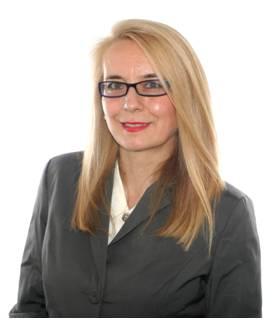 |
Annamaria Di FabioAnnamaria Di Fabio, Ph.D. is Full professor of Work and Organizational Psychology at the Department of Education, Languages, Intercultures, Literatures and Psychology (Psychology Section) of the University of Florence (Italy). She is also Director of both the following International Research and Intervention Laboratories: Cross-Cultural Positive Psychology, Prevention, and Sustainability; Work and Organizational Psychology for Vocational Guidance, Career Counseling, Talents and Healthy Organizations. Her principal research areas are focused on work and organizational psychology, decent work/decent lives, psychology of harmonization, emotional intelligence, psychology of individual differences, positive preventive psychology in a primary and cross-cultural perspective, also promoting the new area of the psychology of sustainability and sustainable development. She is author of more than 200 peer reviewed articles and books/book chapters and responsible for many editorial book series and scientific journals. She was invited in many international scientific conferences both as keynote speaker and as chair and discussant. She has international agreements and collaborations for research activities with many universities and institutions all over the world (USA, Canada, Australia, New Zealand, South Africa, Japan, Malaysia, South Korea, Indonesia, China, Vietnam, Bangladesh, India, and Europe). She organized several International Conferences at the University of Florence (Italy) on many different topics, particularly committed to advancing a cross-cultural perspective for healthier societies fostering healthy organizations, psychology of sustainability and sustainable development, decent work and decent lives in strength-based prevention perspectives. |
| CO-PRESIDENTS OF THE CONFERENCE AND INVITED KEYNOTE SPEAKERS | |
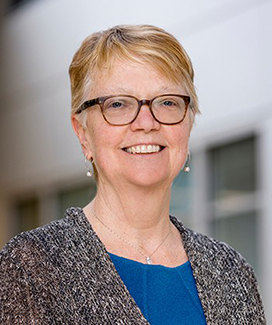 |
Maureen E. KennyMaureen E. Kenny, PhD, is interested in enhancing ways to cultivate academic, career and socioemotional development among children, adolescents, and families. She seeks these answers by examining the individual and contextual factors that promote positive growth and studying how to prepare individuals and systems to adaptively manage shifts in technology, globalization, and workforce opportunities. Her expertise includes the design and evaluation of school and community-based interventions, with a focus on marginalized youth and the promotion of student motivation, career adaptability and well-being. She joined the Lynch School in 1988. She served as Dean from 2013–2016, as Interim Dean from 2011–2013, as Associate Dean of Faculty and Academic Affairs from 2007–2011, and as chair of the CDEP department from 1997–2000. An author of dozens of publications, she has delivered more than 100 presentations at national and international conferences. She served on the editorial boards of the Journal of Counseling Psychology and the new American Psychological Association journal, the Journal of Health Promotion and Prevention. In 2009, she received the Lifetime Achievement Award in Prevention from the American Psychological Association’s Society for Counseling Psychology. |
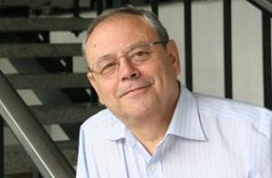 |
José Maria PeiróPhD University of Valencia, 1977. Professor of Work and Organizational Psychology and Researcher of the Institute of Human Resources Psychology (IDOCAL) at the University of Valencia and also of the Ivie (Valencian Research Institute of Economics) Member of the Spanish Academy of Psychology. His research focuses mainly on occupational stress and wellbeing at the individual and collective levels. He also studies team and organizational climate and culture and work socialization processes as well as youth labor market entry, unemployment, employability and over qualification and professional competencies. He has published about 200 articles and book chapters and several books and monographs. Associate Editor of the European Journal of Work and Organizational Psychology (1995-2001). He has received the Aristotle 2015 Award from EFPA, the Advanced International Research and Service Award by the International Council of Psychologists (2013), the Life time award of the European Association of Work and Organizational Psychology (2013) and the ‘José L. Pinillos award to the excellence and Innovation in Psychology’ (2016) by Psicofundación (Spain). He has received the Honorary doctorate from the University of Mastricht (2020), University Miguel Hernandez (Elx) and Univerity Methodista of Sao Paulo (Brasil). |
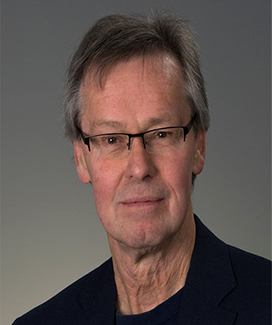 |
Donald H. SaklofskeHe joined the Psychology Department at the University of Western Ontario five years ago. Previously, he was a Full Professor in Applied Psychology and Associate Dean Research (Faculty of Education) at the University of Calgary. He is currently an Adjunct Professor at the University of Calgary as well as the Department of Educational Psychology, University of Saskatchewan, Visiting Professor in the School of Psychology at Beijing Normal University, and a Research Member in the International Laboratory for Research and Intervention in Cross-Cultural Positive Psychology, Prevention, and Sustainability (CroCPosPsychP&S), University of Florence, Italy. Editorships include: Personality and Individual Differences, Journal of Psychoeducational Assessment and until recently, the Canadian Journal of School Psychology. He is also Editor for the Human Exceptionality book series published by Springer. He has published 35 edited and authored books (4 in press) and more than 100 book chapters and 200 journal articles. Don is a Fellow of the Canadian Psychological Association, Association for Psychological Science, and Society for Personality and Social Psychology. He recently served on the Board of Directors and as President of the International Society for the Study of Individual Differences and the Board of the Canadian Psychological Association. He has a long standing interest in the martial arts and earned a black belt (sandan) in Shito-Ryu karate. |
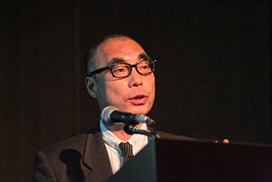 |
Akira TsudaAkira Tsuda has been a Kurume University professor since 1992. He continues teaching and studying efforts on indigenous and cultural psychological aspects of stress, health and well-being from the point of view of a biopsychosocial approach. He has been given numerous awards and honors as a researcher and service to the profession. He has been president of the meeting of Japanese Psychological Association 2018, was organized many conferences and annual meetings such as the Japanese Behavioral Society, Japanese Association of Health Promotion, Japanese Society of Stress Management etc., and has been given a dozen executive members of scientific committee in Japan. He has published more 200 professional publications and 50 book chapter papers. His latest passion is helping to create effective stress management intervention program for space exploration innovation. |
| INVITED KEYNOTE SPEAKERS | |
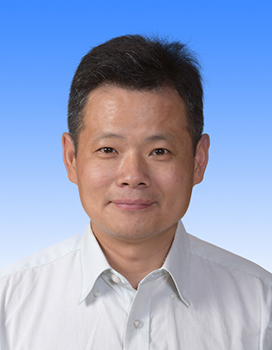 |
Han BuxinBuxin Han is professor of psychology at the Institute of Psychology, Chinese Academy of Sciences (IPCAS), Beijing, China. He received his doctorate in Psychology (IPCAS, 1993), research on the psychology of ageing, cultural psychology of religion, and color perception. He has published over 200 scientific articles in journals in either English or Chinese, and is on the editorial boards of several Chinese Journals. He was elected as a member of the Board of Directors (BoD, 2006-2014) and Secretary-General (S-G, 2014-2018) of the International Association of Applied Psychology (IAAP), BoD member (2005-2019), President-Elect (2019-2022) of and IAAP liaison (2006-2018) to the APsyA. He was appointed as IAAP liaison to and worked very hard to the great success of the 1st South East Asian Regional Conference of Psychology (RCP2107, November 28- December 1, Hanoi). His contributions for these important events were highly recognized and hence he received the Distinguished Award issued by the International Union of Psychological Science (2004), China Associations of Science and Technology (CAST, 2006), and the IAAP (2018). He is active in Chinese and International academic organizations. He has organized annual Sino-American Bilateral Conference on Cultural psychology of Religion since 2007; chairing the annual International Workshop for Young Psychologists in Frontiers of Psychology, which was supported by the CAS, since 2018. |
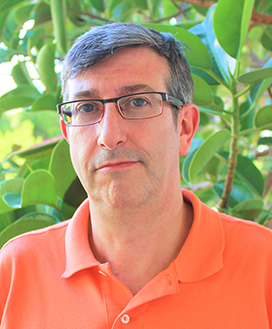 |
José RamosJosè Ramos is Full Professor of Work and Organizational Psychology in the Department of Social Psychology (Faculty of Psychology, University of Valencia, Spain), were he obtained his PhD. in Psychology (1993). Member of the IDOCAL (University Institute of Psychology of Human Resources, Organizational Development and Quality of Working Life) and IVIE (Valencia Institute of Economic Research). Current Head of the Department of Social Psychology (from 2015), former Dean of the Faculty of Psychology (2006-2012) and Vice-Dean for Academic Affairs (1999-2006) at the University of Valencia. General Segretary of the Spanish National Award Committee for the EuroPsy Certificate (EFPA and COP-Spanish Psychological Association) from its origins in 2010. Past Member of Executive Committee amd Treasurer of EAWOP (2015-2019). His research focus on “Organisational Climate”, “Service Quality”, “Management of Service Organisations”, “Psychological contracts across employment situations”, 2Youth Labour Insertion and Socialization”, and “Gender unequelity at work”, with about twenty contributions on books, about fifty papers in research journals and directed nine doctoral dissertations and several master thesis. Reviewer of the Spanish National Agency of Assessment and Prospective (ANEP), and different jornals on work and organizational psychology. He developed trainig and consultancy activities in different public and private institutions in Spain, and leaded and participated in several public funded research projects |
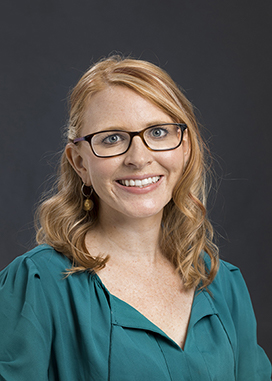 |
Kelsey AutinKelsey Autin, PhD is interested in how people find fulfillment in their occupations and how this relates to overall well-being. Within this, she focuses on how people’s identities (e.g., gender, racial, social class identities) along with their sociopolitical contexts (e.g., experiences of marginalization, economic circumstances) shape their beliefs about their freedom of work choice and barriers to obtaining decent work (i.e., work in which people are paid adequately and are safe from physical and psychological harm). In turn, she looks at mechanisms through which decent work fulfills basic human needs (e.g., needs for financial security, connection with others, and a sense of autonomy) that ultimately lead to fulfillment, life satisfaction, and meaning. Dr. Autin is an assistant professor of counseling psychology in the Department of Educational Psychology at the University of Wisconsin-Milwaukee. She earned her undergraduate, master’s, and doctoral degree psychology and counseling psychology from the University of Florida. She serves on editorial boards for Journal of Vocational Behavior, Journal of Career Assessment, and Journal of Counseling Psychology. |
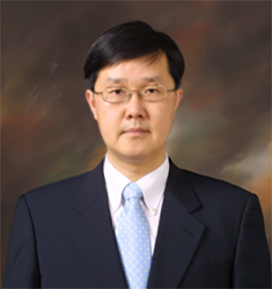 |
Uichol KimUichol Kim, Ph.D., Professor, College of Business Administration, Inha University, Korea. He has previously taught at the Department of Psychology, Chung-Ang University, University of Tokyo, Japan and University of Hawaii at Manoa, USA. He was a visiting professor at Stanford University, University, Xiamen University, China, University of Konstanz, Germany and University of Bergen, Norway. He has conducted research in indigenous and cultural psychology, focusing on family and parent-child relationship, education attainment and school violence, health and quality of life, democracy, and human rights and political culture. In management, his research focuses on leadership, organizational culture and sustainability, focusing on creativity, innovation and entrepreneurship. He has published over 200 articles and 20 books and provided lecture/consulting for companies/governmental agencies headquartered in the USA (Pfizer, Stryker Corporation; Department of Health, State of Hawaii), Canada (Canadian International Development Agency), France (La Poste, MAPI Institute), Germany (BASF), Thailand (PTT), Japan (Toyota Home), Indonesia (Ciputra Group) and Korea (LG Group, Samsung Life Insurance, Halla Group and Dongsung Corporation). |
PRESIDENTS OF THE SCIENTIFIC AWARDS COMMITTEE
Maureen E. Kenny – Boston College (USA)
SCIENTIFIC COMMITTEE
Dinah Alexander, University of the Witwatersrand (South Africa); Frederik Anseel, King’s College London (UK); Giulio Arcangeli, University of Florence (Florence); Caroline Arnoux-Nicolas, University of Paris Nanterre (France); Neal Ashkanasy, University of Queensland (Australia); Kelsey L. Autin, University of Wisconsin-Milwaukee (USA); Samia Ben Youssef Mnif, University of Tunis (Tunisia); Jean-Luc Bernaud, INETOP-CNAM (France); Pablo Fernandez-Berrocal, University of Malaga (Spain); Lynette H. Bikos, Seattle Pacific University (USA); David Blustein, Boston College (USA); Laura Borgogni, Sapienza University of Rome (Italy); Richard E. Boyatzis, Case Western Reserve University (USA); Stuart Carr, Massey University (New Zealand); Fanny Cheung, The Chinese University of Hong Kong (China); Rita Chiesa, University of Bologna (Italy); Saths Cooper, University of Pretoria (South Africa); Claudio Cortese, University of Turin (Italy); Serena Cubico, University of Verona (Italy); Sílvia da Silva, ISCTE-Instituto Universitário de Lisboa (Portugal); Jesus Enrique De La Fuente, University of Almería (Spain); Marco Depolo, University of Bologna (Italy); Matthew A. Diemer, University of Michigan (USA); Annamaria Di Fabio, University of Florence (Italy); Santo Di Nuovo, University of Catania (Italy); Elisabeth Doutre, Université Grenoble Alpes (France); Emre Er, Yıldız Teknik University (Turkey); Natalio Extremera, University of Málaga (Spain); Geneviève Fournier, Laval University, Québec (Canada); Márta Fülöp, Eötvös Loránd University (Budapest); Cristina García-Ael, UNED, Madrid (Spain); Itamar Gati, The Hebrew University of Jerusalem (Israel); Enrichetta Giannetti, University of Florence (Italy); Gabriele Giorgi, European University of Rome (Italy); Alessio Gori, University of Florence (Italy); Francisco Gracia, University of Valencia (Spain); Guendalina Graffigna, Catholic University of Sacred Heart (Italy); Samuel Greiff, Université du Luxembourg (Luxembourg); Dina Guglielmi, University of Bologna (Italy); Jean Guichard, CNAM-INETOP (France); Jarrod Haar, Auckland University of Technology (New Zealand); Buxin Han, Chinese Academy Sciences, Beijing (China); Christian Heslon, UCO, Angers (France); Annemarie Hiemstra, Erasmus University Rotterdam (the Netherlands); Ronald H. Humphrey, Lancaster University (UK); Dragos Iliescu, University of Bucharest (Romania); Rosnah Ismail, University of Cyberjaya (Malaysia); Konstantinos Kafetsios, University of Crete (Greece); Dasho Karma Ura, Centre for Bhutan Studies and GNH Research (Bhutan); Semih Kaynak, Gazi, University (Turkey); Ümre Kaynak, Gazi, University (Turkey); Maureen E. Kenny, Boston College (USA); Sabire Kılıç, Gazi, University (Turkey); Uichol Kim, Inha University (Korea); Satoko Kimpara, Palo Alto University, California (USA), Barbara Kozusznik, University of Silesia (Poland); Saadi Lahlou, London School of Economics and Political Science, London (UK); Hao Le Van, Vietnam Academy of Social Sciences (Vietnam); Claire Leitch, Lancaster University (UK); Laura Lorente Prieto, University of Valencia (Spain); Edoardo Lozza, Catholic University of Sacred Heart (Italy); Jacobus G. Maree, University of Pretoria (South Africa); Inés Martínez-Corts, University of Seville (Spain); Peter McIlveen, University of Southern Queensland (Australia); Francisco J. Medina, University of Seville (Spain); Yomna Morsy, Abu Dhabi University, United Arab Emirates; Elias Mpofu, University of Sydney (Australia); Nicola Mucci, University of Florence (Florence); Lourdes Munduate, University of Seville (Spain); Yolanda Navarro Abal, University of Huelva (Spain); Robert Ngueutsa, Université De Franche Comté (France); Kyoko Noguchi, Tohoku Bunka Gakuen University, Japan; Kayi Ntinda, University of Swaziland (Swaziland); Yus Nugraha, Universitas Padjadjaran, Bandung (Indonesia); Berkay Özünlü, Sinop University (Turkey); José-Maria Peiró, University of Valencia (Spain); Vijay Pereira, University of Wollongong, Dubai (United Arab Emirates); Harsha Perera, University of Nevada (USA); María del Carmen Pérez-Fuentes, University of Almería (Spain); Juan Carlos Pérez-González, UNED, Madrid (Spain); Renato Pisanti, University Niccolò Cusano (Italy); René Proyer, University of HalleWittenberg (Germany); José Ramos, University of Valencia (Spain); Lourdes Rey, University of Málaga (Spain); Marcelo Ribeiro, University of São Paulo (Brazil); Christine Roland-Levy, University of Reims Champagne-Ardenne (France); Marc A. Rosen, University of Ontario Institute of Technology (Canada); Fatih Şahin, Gazi University (Turkey); Donald H. Saklofske, University of Western Ontario (Canada); Samuel Same Kolle, University of Douala (Cameroon); Philippe Sarnin, Université Lumière Lyon 2 (France); Giuseppe Scaratti, Catholic University of Sacred Heart (Italy); Ilaria Setti, University of Pavia (Italy); Emre Sönmez, Gazi University (Turkey); Laurent Sovet, Université Paris Descartes (France); Anwarul Hasan Sufi, University of Rajshahi (Bangladesh); Hana Suzuki, Ritsumeikan University (Japan); Yoshiyuki Tanaka, Kyoto Tachibana University (Japan); Simon Taukeni, University of Namibia (South Africa); Gabriela Topa, National Distance Education University, UNED (Spain); Nuria Tordera, University of Valencia (Spain); Akira Tsuda, Kurume University (Japan); Ana Maria Tur Porcar, University of Valencia (Spain); Alpana Vaidya, Symbiosis College, Pune (India); Carmelo Vazquez, Complutense University of Madrid (Spain); Greg Yan, Beijing Normal University (China); Kübra Yenel, Gazi University (Turkey); Kwartarini Yuniarti, Universitas Gadjah Mada, Yogyakarta (Indonesia).
OVERVIEW. The cross-cultural Conference Healthier Societies fostering Healthy Organizations: A Cross-cultural Perspective is a two-day interdisciplinary event organized by the University of Florence (Italy). The founding conference, held in 2017 and this is the third meeting. The main aim is to share contributions focusing on research, assessment, and interventions that will offer new or innovative perspectives to foster healthier societies also paying attention to healthy organizations within the public and private sectors. Cross-cultural studies and perspectives will further show-case the applications and implications of current efforts to create positive human ecosystems.
Psychology studies the influence of individuals’, groups’ and societal cultural beliefs, norms and values on illness, health, well-being and health care. Because of the many cultural and country differences so readily apparent in our world, it is important to understand cross-cultural differences in the early identification and prevention of those factors that undermine the psychological and physical health of individuals and larger society and concurrently engage in health promotion initiatives that will enhance the quality of life (Kazarian & Evans, 2001). Cross-cultural studies further contribute to the understanding of personality traits in health and positive psychology (Bowden, Saklofske, van de Vijver, Sudarshan, & Eysenck, 2016), as well as career readiness, choice and engagement (Cheung, Wan, Leong, & Mok, 2013; Fan, Cheung, Leong, & Cheung, 2014; Guichard, 2013; Savickas, 2011; Di Fabio & Blustein, 2016; Blustein, Kenny, Di Fabio, & Guichard, 2019). Different themes typical of occupational health psychology will be examined in a cross cultural perspective including: health and well-being (Burke, 2010; Peiró, Sora, & Caballer, A., 2012; Tetrick & Peirò, 2012;) both for workers and for the organizations (Boyatzis, 2015; Di Fabio, 2016, 2017; Di Fabio & Tsuda, 2018; Estreder, Rigotti, Tomás, & Ramos, 2019; Peirò & Tetrick, 2011; Ramos, Anderson, Peiró, & Zijlstra, 2018), occupational stress focusing on stressor-strain relationships (Chang & Baard, 2011), the role of stressors as harmful and threatening (distress) and/or as opportunities and challenges (eustress) in causing negative (burnout) and positive (engagement) effects (Kozusznik, Rodríguez, Peiró, 2012, 2015; Rodríguez, Kozusznik, & Peiró, 2013). Organizational health psychology (Chang & Spector, 2011) calls for a cross-cultural perspective that will contribute to both a preventive and positive framework (Kenny & Hage, 2009; Di Fabio & Kenny, 2016) across cultural contexts and ranging from developed to emerging economies (Raya & Panneerselvam, 2013). During the First International Cross-cultural Conference the Positive Cross-cultural Organizational Health Psychology (Di Fabio, 2017b, Di Fabio & Peiró, 2018; Di Fabio & Tsuda, 2018) was settled in a cross-cultural preventative perspective (Di Fabio, 2018; Di Fabio & Kenny, 2016; Di Fabio & Saklofske, 2019) with the contribution of the International Core-group.
TOPICS. This third International Conference on Healthier Societies fostering Healthy Organizations: A Cross-cultural Perspective continues this productive forum started in 2017 in Florence for discussing the fostering of healthy organizations that will in turn lead to healthier individuals and societies based on scientific evidence. Cultural factors will also be emphasized. These contributions will reflect five thematic areas:
1) new ways of conceptualizing how individuals interact with the environment/s in the context of healthy organizations and organizational relations (e.g., prosocial organizational behavior, organizational citizenship behavior, workplace civility, organizational justice, organizational emotional intelligence; leadership, intrapreneurship, entrepreneurship, acceptance of change; positive self and relational management model; positive relational management…);
2) the dark side of unhealthy organizations;
3) the relation between ethical, sustainable, benevolent, health-promoting leadership and healthy organizations, resulting in in the best leadership for healthy organizations in the 21st century;
4) research on well-being, personality traits and individual differences, positive outcomes for healthier societies and healthy organizations;
5) evaluation of specific interventions to foster healthier societies and healthy organizations.
The Conference enriches the framework for the promotion of psychosocial and healthy well-being drawing on evidence-based descriptions of interpersonal relationships and positive enhancing infrastructures in the larger socio-organizational context/s.
CALL FOR ABSTRACTS. The program committee invites you to submit proposals for symposia, paper sessions, and posters. We welcome international contributions from scholars and professionals involving research and practice oriented approaches and perspectives.
Papers will be scheduled for 15 minutes. Poster sessions will be 1.5 hours and intended to promote discussion and exchange of information. Symposia will include 4-5 papers each of 15 minutes. Submission forms are included in the “Call for papers”.
SUBMISSION OF ABSTRACTS. An abstract (to a maximum of 150 words) should be submitted by the 28th of February 2020 to adifabio(AT)psico.unifi.it (please, specify the title “Submission Third International Conference: Healthier societies fostering healthy organizations: A cross-cultural perspective”). Each contribution will be peer evaluated, according to the relevance of the Conference’s topics, significance of the contribution, and originality. Participants will be notified regarding the acceptance of their paper by the 9th of March 2020.
REGISTRATION. The cross-cultural International Conference Healthier Societies fostering Healthy Organizations: A Cross-cultural Perspective is the third of several planned events in the future in Florence (Italy). The aim of this third conference is to assemble researchers and professionals/practitioners with a shared interest in the cross-cultural study of creating healthy human societies and organizations, in order to establish a reoccurring international conference and summer school in Florence on this emerging topic (the first Summer School was in 2018 and the second Summer School will be in 2020 during the period of the Conference).
ORGANIZING COMMITTEE
Responsible of the organizing committee: Annamaria Di Fabio, University of Florence (Italy).
Members of the organizing committee: Serena Cubico, University of Verona (Italy); Gabriele Giorgi, European University of Rome (Italy); Alessio Gori, University of Florence (Italy); Marco Giovanni Mariani, University of Bologna (Italy); Letizia Palazzeschi, University of Florence (Italy); Ilaria Setti, University of Pavia (Italy).
KEYNOTE SPEAKERS INTERNATIONAL CORE-GROUP “Healthier societies fostering healthy organizations”
José-Maria Peiró – University of Valencia (Spain)
Donald H. Saklofske – University of Western Ontario (Canada)
Maureen E. Kenny – Boston College (USA)
Akira Tsuda – Kurume University (Japan)
Annamaria Di Fabio – University of Florence (Italy)
INVITED KEYNOTE SPEAKERS
Kelsey Autin, University of Wisconsin-Milwaukee (USA)
Buxin Han, Chinese Academy Sciences, Beijing (China)
Uichol Kim, Inha University (Korea)
José Ramos, University of Valencia (Spain)
PANEL ROUND TABLE (event open to citizenship)
COORDINATORS
Jose-Maria Peiró, University of Valencia (Spain)
Akira Tsuda, Kurume University (Japan)
Annamaria Di Fabio, University of Florence (Italy)
MORE INFORMATION. To receive more information, please, contact Annamaria Di Fabio (adifabio(AT)psico.unifi.it).
VENUE
The third international cross-cultural Conference Healthier Societies fostering Healthy Organizations: A Cross-cultural Perspective will be held at the University of Florence on the August 24-25, 2020, in the city of Florence (Novoli Campus, Building D6, via delle Pandette 9).
Discover more about the University of Florence: http://www.unifi.it/index.php
REGISTRATION FEES
Type of registration
Early bird
(until 2nd April 2020): 100 €
Early bird emerging countries and university students of different degrees
(until 2nd April 2020): 50 €
Early bird for participants in all the three international conferences in Florence (24-29 August 2020)
(until 2nd April 2020): 200 €
Early bird emerging countries and university students of different degrees
for participants in all the three international conferences in Florence (24-29 August 2020)
(until 2nd April 2020): 100 €
Regular
(after 2nd April 2020): 150 €
Regular emerging countries and university students of different degrees
(after 2nd April 2020): 75 €
Regular for participants in all the three international conferences in Florence (24-29 August 2020)
(after 2nd April 2020): 300 €
Regular emerging countries and university students of different degrees
for participants in all the three international conferences in Florence (24-29 August 2020)
(after 2nd April 2020): 150 €
Social dinner: 70 €
IMPORTANT DATES:
- Submission deadline: 28 February 2020
- Notification of acceptance: 9 March 2020
- Early bird registration deadline to the conference: 2 April 2020
Ultimo aggiornamento
24.11.2020
